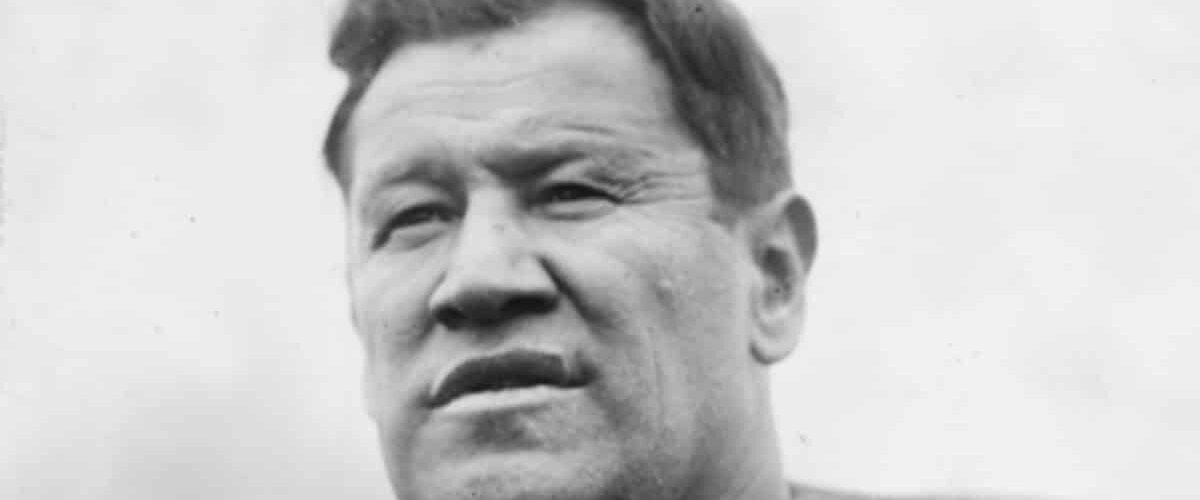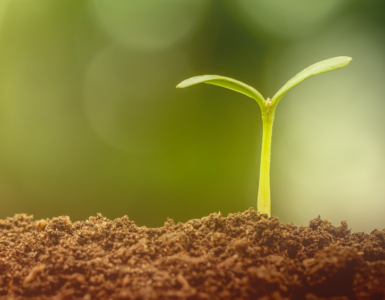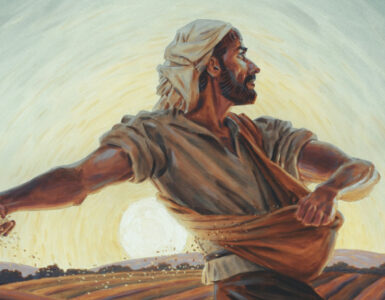Someone was once asked about the difference between heaven and hell, and—tongue in cheek—he replied, “Heaven is where the cooks are French, the police are English, the mechanics are German, the lovers are Italian, and everything is organized and run by the Swiss. Hell is where the English are the cooks, the Germans are the police, the French are the mechanics, the Swiss are the lovers, and everything is run by the Italians.” Actually, the difference between heaven and hell is ultimately linked to the inescapable truth that we reap what we sow—and as the Gospel of Matthew (13:1-23) emphasizes, the seeds we sow in this life are very important; the little things we do can have a profound influence. One motivational speaker began many of his talks by referring to Jim Thorpe, one of the greatest natural athletes in history, and asked, “Who was Jim Thorpe’s coach?” He also asked, “Who was Albert Einstein’s arithmetic teacher in the second grade? Who was Ignace Paderewski’s piano teacher? Who was Billy Graham’s religion teacher in junior high?” His point, of course, was to get people thinking about the unknown persons who had planted the seeds of future greatness, and to have them consider the possibility that they might be given the opportunity to do something similar (Bausch, Storytelling the Word, p. 225).
A Russian politician named Boris Yeltsin played an important role in the fall of communism in the former Soviet Union, and afterwards, during a newspaper interview, he was asked what gave him the courage to stand firm during a difficult time. Yeltsin credited the inspiration of Lech Walesa, the Polish electrician who helped start the trade union Solidarity which was instrumental in overthrowing communism in Poland. When Walesa was interviewed, he stated that he had been inspired by the civil rights movement in the United States, and particularly by Martin Luther King Jr.. Before his assassination in 1968, Martin Luther King Jr. had mentioned in an interview that he had been inspired by the example of Rosa Parks, a black woman whose arrest after refusing to give up her bus seat to a white man sparked the civil rights movement. So in a sense we might say that the actions of one brave woman in Mississippi in 1955 helped bring about the downfall of communism in Europe over thirty years later (Bausch, op. cit., p. 226).
We never know exactly what seeds we’re planting or how we may be influencing others, but we can be sure of this: seeds of faith, when nourished by love and justice, can turn into great things.
There’s a school of philosophy known as determinism that says human beings aren’t really free or in charge of their lives; all human activity and thinking is supposedly governed by instinct or other forces beyond our control—meaning that all life proceeds according to a predetermined script. Christianity rejects this idea, and instead teaches the truth that God is in charge of the outcome of history, and that our decisions and actions can have a lasting influence on ourselves and others. Today’s readings tell us that this influence becomes a holy and life-giving one when we cooperate with the Lord’s plan. The 1st Reading from the Book of the Prophet Isaiah uses the image of rain from heaven making the earth fertile to show that God’s word is effective in achieving its purpose. That’s why St. Paul (Romans 8:18-23) insists that all creation—including humanity itself—though temporarily in bondage because of sin, will one day be set free and be recreated in glory. It’s up to us, of course, whether or not to take part in this process.
Our Lord’s parable of the sower shows that while God offers the saving gift of faith to everyone, people make many different responses to it. Some ignore it or reject it, some accept it only on the surface or in a half-hearted manner, and some take it to heart and bring forth a rich spiritual harvest. Only the last group is truly pleasing to God, and only they have the assurance of belonging to His Kingdom.
There was once a science experiment in which an eight-foot steel bar was suspended from the ceiling by a very strong wire. A few feet away, a small cork the size of a wine bottle stopper was suspended by a fine silk thread. The cork was swung gently against the steel bar again and again. At first nothing happened, but after ten minutes of being struck repeatedly by the cork, a slight impact could be noticed in the piece of metal. After thirty minutes, the cork had transferred enough momentum to the steel bar that it began swinging on its own like a mighty pendulum (Zuck, The Speaker’s Quote Book, p. 210). A little bit of effort on our part, consistently applied and strengthened by God’s grace, can have powerful results; our willingness to plant some seeds can eventually bring about a rich harvest.
We have the power to help change people’s lives, to spread the Gospel of salvation, and to make this a better world. For instance, our regular expressions of thanks and support to an honest but under-appreciated local official might inspire him or her to seek higher office, and to become a strong voice for social reform. Our letters of protest to sponsors of immoral TV shows might prompt them to apologize and to change their advertising policies. Our act of volunteering at the hospital or homeless shelter or crisis pregnancy center might give us the chance to say a few friendly words that end up changing the course of someone’s life. Our gift of a good Catholic book to someone living in sin or moral confusion might help bring about that person’s conversion. Our suggestion to a young person that he or she might make a good priest or nun may uncover an unexpected vocation, leading to a long life of dedicated ministry. Our frequent and sincere expressions of love may help a young person believe in his or her own dignity and value, resulting in a life of grace and joyful service. Our example of trusting in God no matter what happens may encourage someone else to take the Gospel seriously—and that person may turn out to be a moral and spiritual giant, performing great deeds for God of lasting spiritual worth.
There are no limits to what God is able to accomplish when we give Him the opportunity. We won’t always see the results right away, and quite possibly we won’t be aware of them until we reach heaven, but we will be able to rejoice one day that we were like the soil which produced thirty, sixty, or a hundred-fold. Jesus has honored us by giving us the privilege of helping share His Gospel of salvation, and if we pray for the grace to recognize the chances we’re given, we’ll discover and experience the joy of helping make a difference.





























And who knows, Father, what your column might do to inspire someone to ‘sew’ some seed, somewhere, somehow…,